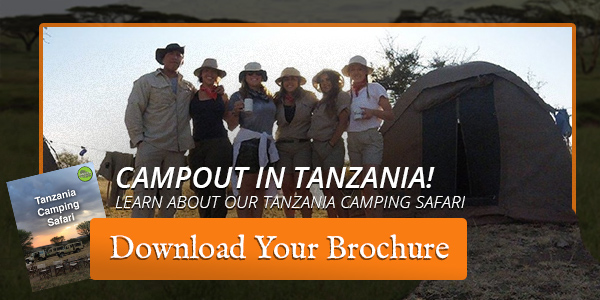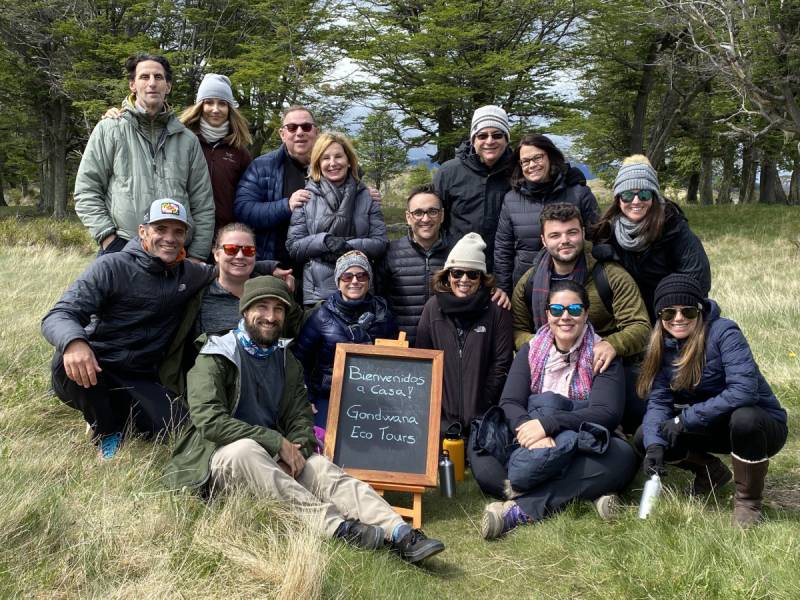An African Safari is a bucket-list experience for a reason, and the thrill of the unknown is a huge draw when it comes to traveling. However, traveling to a new continent can be a daunting task, especially when considering safety. When traveling to new places, it’s essential to research and find out what to expect.
A question that a lot of people have when they are planning their safari vacation is: are African Safaris safe?
Africa is a continent with over 50 individual countries, each having a unique history and identity. Political instability, poverty, and unemployment have been a challenge for many countries in Africa, but it is an incredible place to visit, and there are many safe safari destinations.
What Makes a Safari Safe?
Many different factors contribute to the safety of a safari destination. These include personal safety, the amount of petty crime, safety from wild animals, the global peace index ranking, and the overall crime rate.
Travelers can be targets for scams and pickpockets anywhere in the world, so it’s important to be vigilant. We recommend having traveler’s insurance to cover potential losses and traveling with an established safari company for extra peace of mind.
<h3>When going on safari in Africa, there are several important things to be careful of to ensure your safety and enjoyment:</h3>
- Respect the animals and keep a safe distance at all times: Do not approach or attempt to feed wild animals. Remember that these are wild creatures and their behavior can be unpredictable.
- Stay inside your vehicle: While on game drives, it’s crucial to remain inside your vehicle unless your guide gives you permission to step out at designated safe spots. This is especially important in areas with predators like lions, leopards, and cheetahs.
- Listen to your guide: Follow the instructions of your safari guide at all times. They are experienced professionals who understand the environment and know how to keep you safe.
- Avoid sudden movements and loud noises: Sudden movements or loud noises can startle animals and may lead to dangerous situations. Remain calm and quiet to observe wildlife without causing any disturbances.
- Stay hydrated and protect yourself from the sun: African safaris often involve long hours under the sun. Drink plenty of water to stay hydrated and wear sunscreen, a hat, and protective clothing to prevent sunburn.
- Beware of insects and bugs: In certain regions, insects like mosquitoes can carry diseases such as malaria. Take appropriate precautions such as using insect repellent, wearing long sleeves and pants, and sleeping under mosquito nets.
- Respect the environment: Do not litter or disturb the natural habitat. Follow leave-no-trace principles and dispose of waste properly.
- Stay informed about local customs and regulations: Different areas may have specific rules and customs that visitors should adhere to. Make sure you are aware of and respect these cultural norms.
- Be prepared for the weather: Weather conditions in Africa can be variable. Pack appropriate clothing for both hot and cold temperatures, as well as for rainy conditions if you’re visiting during the wet season.
- Medical precautions: Depending on the location of your safari, you may need vaccinations or preventive medications for diseases such as malaria or yellow fever. Consult with a healthcare professional well in advance of your trip to ensure you are properly prepared.
By keeping these precautions in mind and exercising common sense, you can have a safe and memorable safari experience in Africa. Ultimately, the key to staying safe while you are out in national parks is to listen to your safari guides. Guides are local experts with a vast amount of knowledge, such as the Conservationist Gorilla Trackers we work with on our Gorilla Trekking Safari in Rwanda and Uganda. Safari guests strive to disturb wildlife as little as possible, so you’ll want to keep your voice down. It’s important to wear clothing that blends in with the landscape like brown and khaki and stay in the vehicle as this is the safest place to be. When staying in lodges and deluxe tents, it’s important not to walk around without an escort at night.
Many sub-Saharan countries host safaris, but choosing the right one to visit can be daunting. We selected the following five destinations as the safest places to safari in Africa.

Safari through the Tanzanian bush
Tips for a Safe Safari in Tanzania
Travelers often return from Tanzania saying they felt incredibly welcomed to the country. Travelers often feel very welcome in Tanzania because politeness is one of the pillars of Tanzanian culture and the people are some of the most friendly you could meet. Tanzania is a safe and politically stable country in eastern Africa.
The Serengeti National Park is a great safari destination for people seeking a glimpse of the annual wildebeest Great Migration. Another safari highlight is the Ngorongoro Crater, a UNESCO World Heritage Site that is renowned for spectacular views and bountiful wildlife. Tanzania is one of the less “touristy” places to go on safari, which gives it a less crowded feel than some of the more popular destinations such as South Africa. The national parks, including Serengeti National Park and the Ngorongoro Crater are often quieter and more remote than some of the other common safari destinations.
How to have a Safe Safari in Rwanda
Rwanda is another safe country to visit on safari, in part due to the work that the tireless work the government and the community of Rwanda have put in to help their country recover after the Rwandan Genocide. The most exciting trekking destination is Volcanoes National Park, which is teeming with wildlife as well as being home to the critically endangered mountain gorillas — seeing the gorillas in person is an incredible safari experience!
When embarking on a safari in Rwanda, several must-see destinations promise unforgettable wildlife encounters and breathtaking natural beauty. Foremost among these is Volcanoes National Park, renowned for its population of endangered mountain gorillas. Trekking through the lush forested slopes of the Virunga Mountains offers a rare opportunity to observe these magnificent primates in their natural habitat. Additionally, Akagera National Park beckons with its diverse landscapes, including savannah, wetlands, and woodlands, providing sanctuary to a wealth of wildlife such as elephants, lions, and hippos. Lastly, Nyungwe Forest National Park offers a different safari experience, with its ancient rainforest canopy providing a habitat for chimpanzees, colobus monkeys, and a myriad of bird species. Each of these destinations offers a unique and enriching safari experience, showcasing Rwanda’s remarkable biodiversity and conservation efforts.
Is it Safe to Safari in Botswana?
Botswana’s top safari destination is Chobe National Park, which is dense with all sorts of iconic African animals. With over 50,000 elephants migrating through the park, Botswana has one of Africa’s highest concentrations of these incredible animals. Botswana is consistently ranked as one of the safest countries in Africa. It sits landlocked in the middle of Southern Africa, sandwiched between Namibia, South Africa and Zimbabwe. Soccer is the national sport, played every Saturday in stadiums and fields across the country.
When embarking on a safari adventure in Botswana, prioritizing safety is paramount. First and foremost, opt for reputable tour operators and lodges with experienced guides who are well-versed in navigating the wilderness. Stay informed about wildlife behavior and follow all park regulations to minimize encounters with potentially dangerous animals. Ensure you have adequate supplies, including water, food, and emergency provisions, especially if venturing into remote areas. Respect the environment and wildlife by maintaining a safe distance and refraining from feeding or approaching animals. Lastly, communicate your itinerary with others and have emergency contacts readily available. With careful planning and vigilance, you can enjoy a memorable and safe safari experience in Botswana.
Plan a Safe Safari In Zambia
Zambia sits at the crossroads of Central, Southern and East Africa. Two of the biggest safari attractions in Zambia are Zambezi National Park and Victoria Falls. Victoria Falls is a waterfall on the Zambezi river, located on the border of Zambia and Zimbabwe. Victoria Falls is a world heritage site and one of the world’s largest waterfalls. There are generally fewer tourists than in other safari destinations and unpaved roads keep the landscape looking wild.
Zambia’s strategic location at the intersection of Central, Southern, and East Africa makes it a gateway to a myriad of natural wonders. Among its notable attractions, Zambezi National Park and Victoria Falls stand out as prime safari destinations. Victoria Falls, straddling the border between Zambia and Zimbabwe, is a UNESCO World Heritage Site and one of the planet’s largest waterfalls, captivating visitors with its awe-inspiring beauty and thunderous cascades. Unlike more heavily trafficked safari spots, Zambia offers a more intimate experience, with fewer tourists and unpaved roads preserving the untamed allure of its landscapes. Whether exploring the wilderness of Zambezi National Park or marveling at the majestic Victoria Falls, Zambia promises an unforgettable adventure for nature enthusiasts and thrill-seekers alike.
Namibia Safaris
The deserts, mountains, canyons, and savannas of Namibia are spectacular. Namibia has the Atlantic Ocean as its western border. Etosha National Park is a big safari attraction and is home to iconic animals such as elephants, rhinos and cheetahs, as well as amazing landscapes. 2002 marked the end of the Angolan Civil War, and safety in Namibia has advanced hugely since the end of the conflict.
Namibia’s diverse landscapes offer a captivating backdrop for travelers seeking adventure and natural beauty. With the Atlantic Ocean gracing its western border, Namibia boasts a unique blend of coastal vistas and inland wonders. Etosha National Park stands as a testament to the country’s commitment to conservation, drawing visitors with its abundance of iconic wildlife species and stunning scenery. Since the conclusion of the Angolan Civil War in 2002, Namibia has made significant strides in enhancing safety and security, making it a more appealing destination for tourists seeking a safari experience without compromising on peace of mind.
Safe Safaris In South Africa
South Africa sits on the southernmost tip of the African continent. It’s a country that is renowned for varied topography, natural beauty, and cultural diversity and is popular with travelers, especially for safaris in Kruger National Park. However, because South Africa ranks in the top 20 countries in the world in terms of crime rate, we would not recommend South Africa as a safe safari destination.
While South Africa offers breathtaking landscapes and a rich tapestry of cultures, its high crime rate raises concerns for travelers’ safety. Despite the allure of safaris in Kruger National Park and other natural wonders, the risk posed by crime cannot be ignored. Visitors must exercise caution and take necessary precautions to mitigate potential risks, such as avoiding certain areas, traveling in groups, and staying informed about local safety advisories. While South Africa has much to offer adventurous travelers, ensuring personal safety should always be a top priority.
How Can You Plan A Safe African Safari?
Traveling with an established safari company and arranging travel insurance are beneficial things to do to stay safe in new places. Taking safety into consideration when traveling on safari in Africa will help give you peace of mind and make your vacation more enjoyable. While in the city or on safari, it is also important to use common sense and be vigilant about safety. Choose your location based on the tips above, and travel with an experienced safari outfitter to make sure you can relax and have the best time possible!



